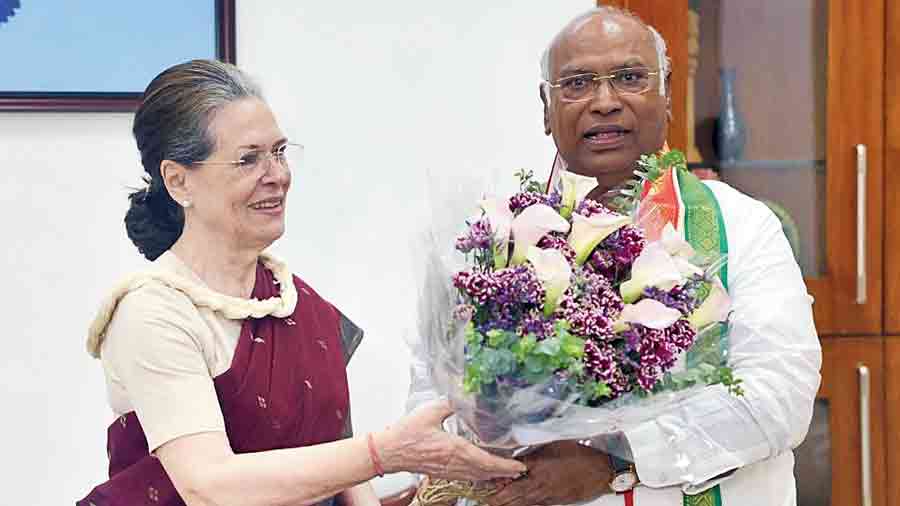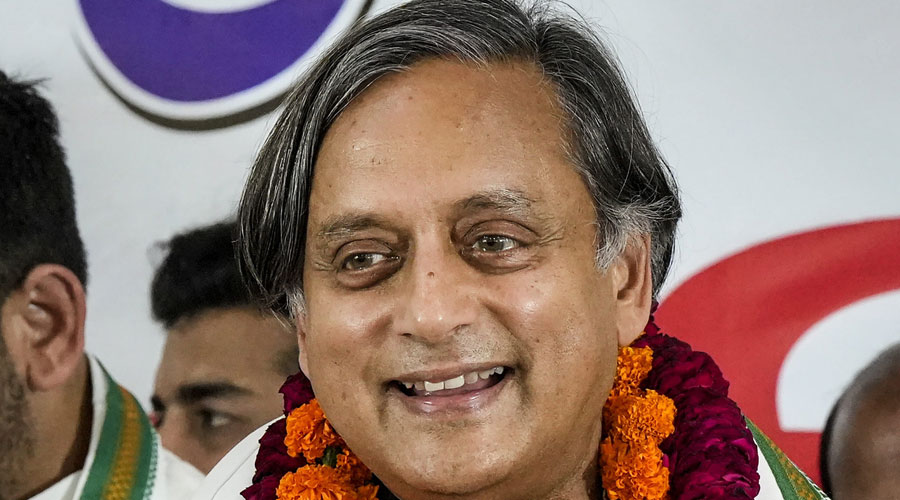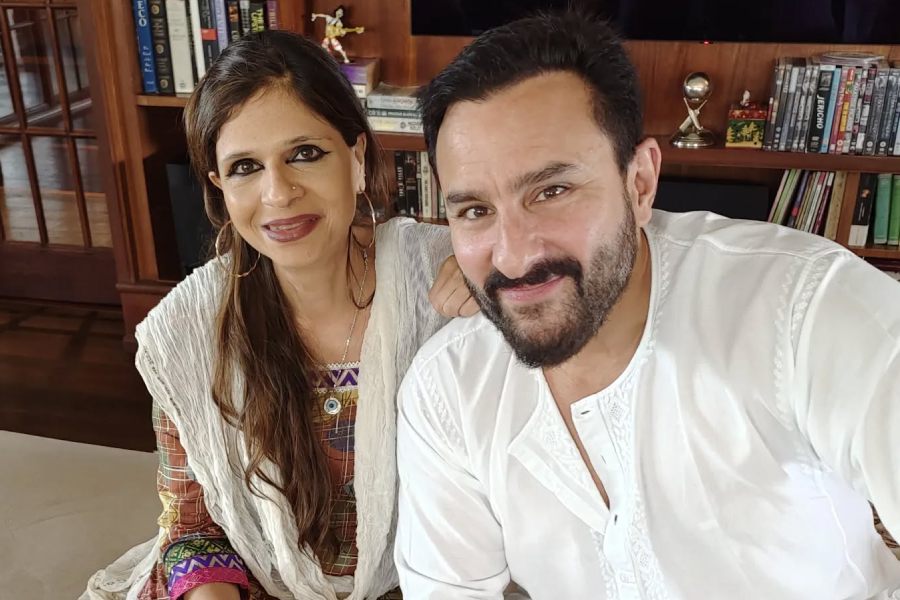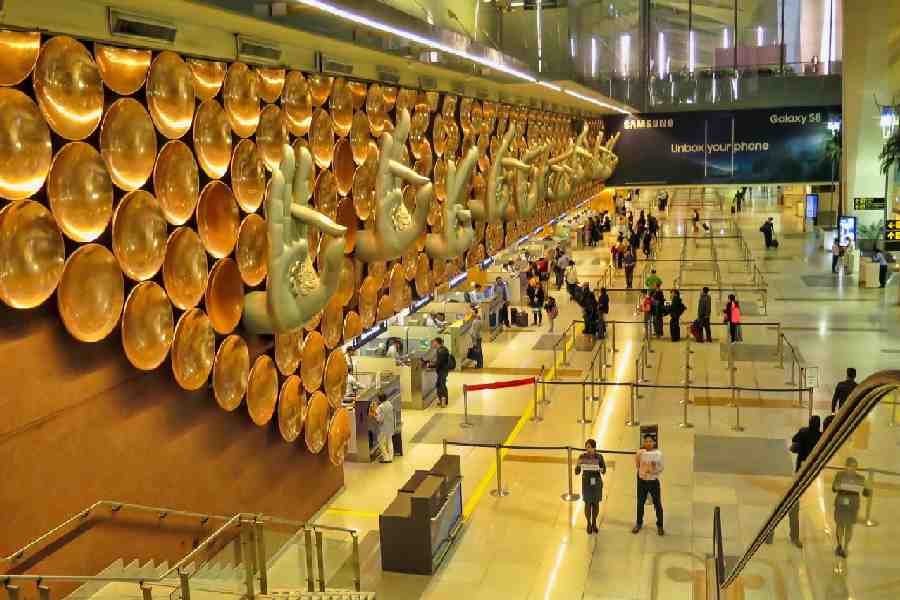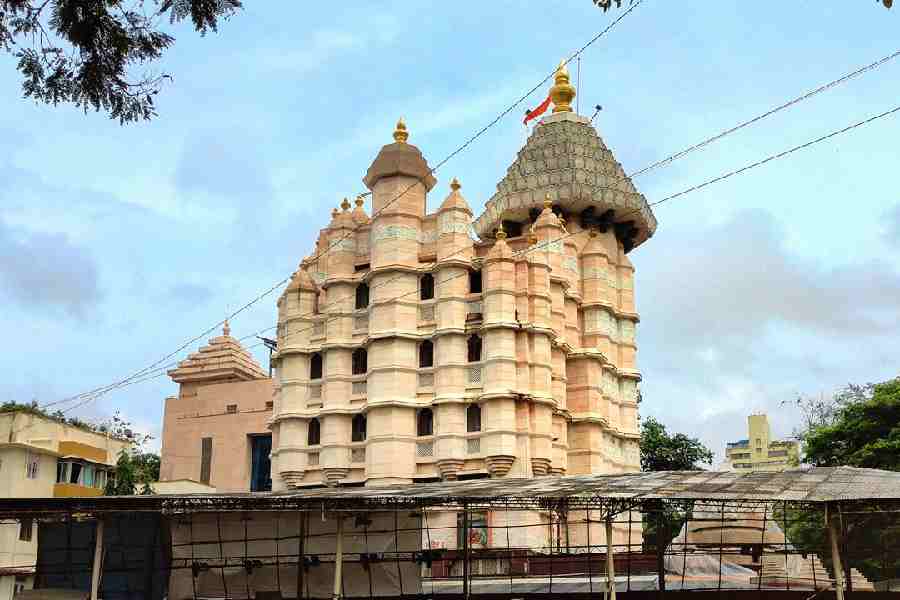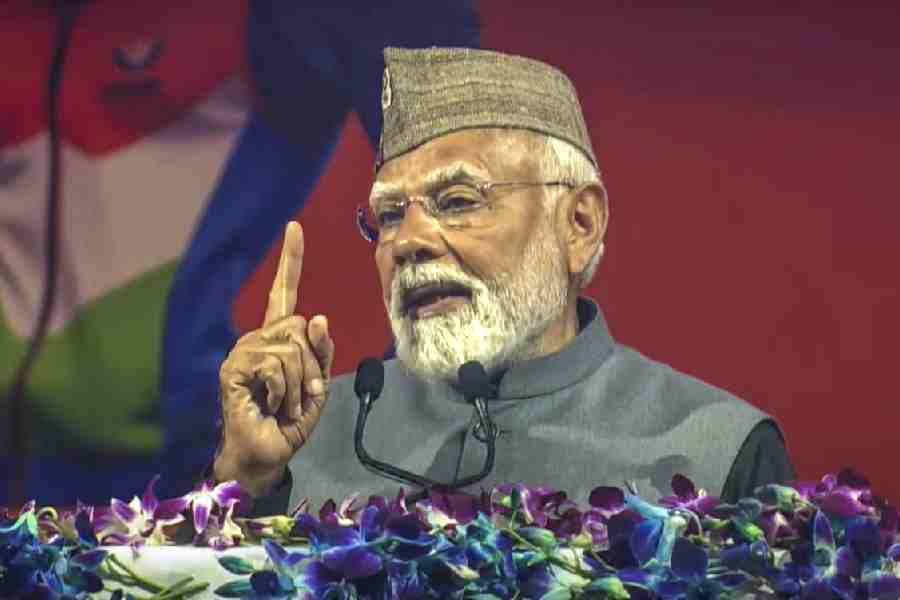Mallikarjun Kharge, who has risen through the ranks to become the Congress president, embodies exceptional perseverance, ideological commitment and political loyalty — virtues that have become scarce in this age of opportunism and betrayal.
Seen by many as a candidate propped up by the Nehru-Gandhi family because of the trust he enjoys, Kharge has had a remarkable political career sustained by personal integrity, struggle and hard work. Few leaders in India have won nine consecutive Assembly elections, in addition to two terms in the Lok Sabha.
On Wednesday, he won the Congress presidential election hands down, polling 7,897 votes to Shashi Tharoor’s 1,072. Some 416 votes were found invalid.
In the 53 years between becoming the Gulbarga Congress chief in 1969 and the party’s national president in 2022, Kharge’s loyalty to the organisation has never been in doubt.
The 80-year-old who defeated the flamboyant Tharoor was in the reckoning for the chief minister’s post thrice in Karnataka but remained steadfast despite losing out. As the leader of Opposition and the Karnataka Pradesh Congress Committee president, he could have blackmailed the central leadership for the chief minister’s post but did not.
Kharge did not seek the party president’s post either and agreed to contest after an overwhelming consensus emerged on his candidature. His track record won him the support of every faction and this was reflected in the outcome of the one-sided contest.
“Mallikarjun Kharge has completed 50 years in electoral politics. He has distinguished himself as a legislator and minister in the state and at the Centre. He is a shining symbol of social empowerment inspired by Nehru, Ambedkar, Indira Gandhi and Devaraj Urs. Kharge’s victory in the Congress presidential election is a triumph for the forces who place ideological commitment over personal glory,” party communications chief Jairam Ramesh said after the results.
While Ramesh did not name Tharoor, the comments reflected how the contest was viewed within the party, among leaders and workers.
In a series of tweets, Ramesh wrote: “Kharge has always avoided flamboyance and has been the quintessential organisation man working in a self-effacing manner to advance the collective interests of the Congress party. He has the good wishes of all Congressmen and Congresswomen.”
The reference to “flamboyance” betrays unease about the tenor of Tharoor’s campaign that many senior leaders had found boastful.
Sonia Gandhi, who had been serving as interim president since Rahul Gandhi stepped down in 2019, and Priyanka Gandhi Vadra visited Kharge to wish him. As did a large number of other leaders, including Tharoor.
Rahul, who is on the Bharat Jodo Yatra, tweeted: “Congratulations to Mallikarjun Kharge ji on being elected as the president of Congress. The Congress president represents a democratic vision of India. His vast experience and ideological commitment will serve the party well as he takes on this historic responsibility.”
Kharge will now occupy the office graced by such illustrious personalities as Mohandas Karamchand Gandhi, Gopal Krishna Gokhale, Madan Mohan Malviya, Lala Lajpat Rai, Subhas Chandra Bose, Abul Kalam Azad, Vallabhbhai Patel, Rajendra Prasad, J.B. Kripalani, Jawaharlal Nehru, K. Kamaraj and Indira Gandhi.
In Sonia and Rahul, he will have to deal with two former Congress presidents who are not only still active in politics but occupy a pre-eminent position in the party. While he can turn this into an advantage by drawing on their experience and clout, any misunderstanding has the potential of creating hurdles as both command the blind loyalty of the majority of Congress workers.
Kharge is the third Dalit Congress president after Damodaram Sanjeevaiah and Jagjivan Ram. Since winning back the support of Scheduled Castes and the deprived sections of the society is one of the most important tasks before the Congress, Kharge’s social background can play a critical role.
Born into a very poor family at Varavatti village of Bidar district in Karnataka, his struggle can be an inspiration for the poor and the weaker sections. Kharge’s father, Mapanna Kharge, left his village after his wife’s death and took up a job in a textile mill in Gulbarga with the sole purpose of educating his younger son.
Kharge, the only one among his siblings to go to college, pursued his BA and LLB and became the first Dalit advocate in the area. He later joined a trade union and the Congress, launching his political career. While local leaders like Dharam Singh supported him initially, he also enjoyed the patronage of Indira Gandhi and later of Sonia Gandhi.
Kharge’s appointment as leader of the Opposition in the Lok Sabha in 2014 and in the Rajya Sabha in 2021 was proof of the trust he continues to enjoy in the party. A seasoned politician with a mind of his own, it would be naive to presume Kharge can be reduced to a rubber stamp.
If he can tackle the many conspirators in the Congress looking to create tension between him and the Nehru-Gandhi family and harmonise his authority with the indisputable reality of Rahul’s stature as supreme leader of the party, he can emerge as one of the most important players in contemporary politics.
Bengal MP
Congress MP Pradip Bhattachrya visited Kharge at his residence and congratulated him. “I told him that his election as a Congress president will surely strengthen the Congress... I also conveyed to him that his leadership, under the guidance of the Gandhi family, will help bring about a change in the country in the 2024 Lok Sabha polls,” Bhattacharya said.

